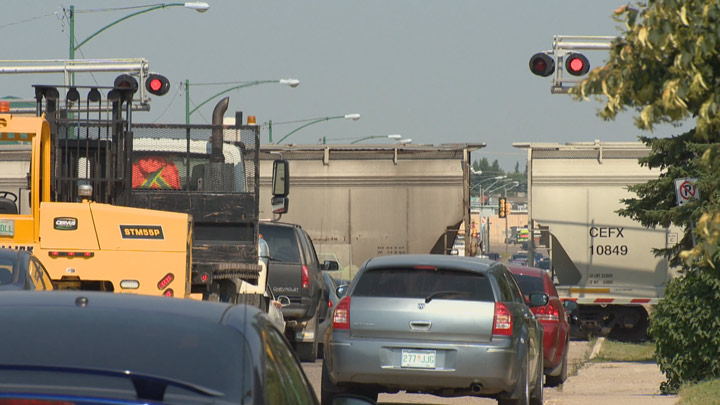Traffic delays at major railway crossings in Saskatoon and the surrounding region is costing the local economy $2.5 million yearly in lost productivity.

The report from the Saskatoon Regional Economic Development Authority (SREDA) analyzed how delays at nine crossings affect businesses.
Alex Fallon, president and CEO of SREDA, said the delays amount to lost labour productivity in the report heading to the city’s standing policy committee.
READ MORE: Saskatoon officials to work on rail delay
City officials said the results of the study will be used as they look at solutions to minimize delays at crossings.
“This study provides us with a measurement of what we’ve suspected for some time,” Angela Gardiner, the city’s director of transportation, said.
“These results will further enhance the railway working group’s move toward a solution for minimizing delays at rail crossings on high traffic streets.”
That could include the relocation of some railway lines.
“The impact of CP (Canadian Pacific) on the city’s road network is significantly greater than that of CN (Canadian National) due to the number of at-grade crossings along the mainline,” Gardiner said.
One of the options being explored by the working group is to relocate the CP rail infrastructure including the Sutherland rail yards.
“If the relocation of CP is determined to be financially feasible, the study may further explore the relocation of CN,” Gardiner said.
READ MORE: Train delays Saskatoon paramedics responding to emergency call
The other option is to construct grade separations at the major railway crossings.
The working group will first undertake a cost and benefit analysis of each option.
Once that is complete and an option chosen, the group will then develop a business case to approach the provincial and federal governments for funding.
The first phase of the feasibility study will be completed next year and presented to the standing policy committee on transportation early in 2018.


Comments